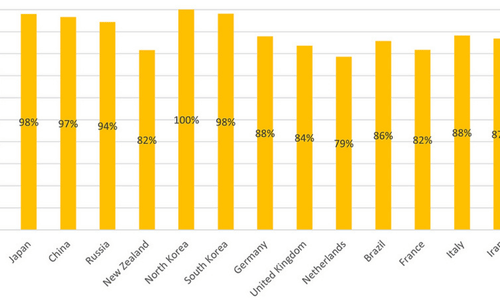Updated:
Introduction
Importance of External Network Security
Almost all businesses rely heavily on their external networks to communicate, collaborate, and operate efficiently. With the ever-increasing number of cyber threats, securing your external network is more important than ever. A single vulnerability in your network can expose sensitive data, damage your organization’s reputation, and have severe financial consequences. To proactively identify and address these vulnerabilities, organizations must invest in external network penetration testing.
Overview of External Network Penetration Testing
External network penetration testing specifically focuses on the security of an organization’s externally facing network infrastructure. This type of testing simulates real-world cyber attacks on the network perimeter, including firewalls, routers, and servers, to identify security weaknesses. By assessing the effectiveness of security measures and uncovering vulnerabilities, businesses can prioritize security improvements and better protect their valuable assets. In the next sections, we will delve deeper into external network penetration testing, discussing its purpose, the testing methodologies, what is tested, why it’s essential, and the costs involved.
What is Tested in External Network Penetration Testing?
A comprehensive external network penetration test covers various aspects of an organization’s externally facing network infrastructure. Some key components tested include:
Network Infrastructure
The core network infrastructure, such as firewalls, routers, switches, and load balancers, is assessed to identify potential weaknesses that could be exploited by attackers. This includes testing for misconfigurations, insecure protocols, and weak access controls.
Web Applications
Publicly accessible web applications are often prime targets for cybercriminals. In an external network penetration test, testers perform a limited evaluation of the security of web applications, looking for vulnerabilities like SQL injection, cross-site scripting (XSS), and insecure file uploads. Note that this is not typically a full Web Application Penetration Test to balance the time and cost of the test.
Email Security
Email is a common attack vector for cybercriminals, who often use phishing and spear-phishing campaigns to gain unauthorized access to sensitive information. Penetration testers assess email security measures, including spam filters, authentication mechanisms, and email encryption.
Remote Access Systems
Many organizations rely on remote access systems, such as VPNs and remote desktop services, to enable employees to work remotely. Penetration testers evaluate the security of these systems, ensuring they are configured correctly and protected against unauthorized access.
Why Get Your External Network Penetration Tested?
External network penetration testing is essential for organizations of all sizes and industries. Here are some key reasons why your organization should invest in this cybersecurity measure:
Identify Vulnerabilities
Penetration testing helps uncover vulnerabilities in your external network that may otherwise go unnoticed. Identifying and addressing these weaknesses proactively can significantly reduce the likelihood of a successful cyber attack.
Prevent Data Breaches
A data breach can have severe consequences for an organization, including financial losses, reputational damage, and legal ramifications. By simulating real-world cyber attacks, external network penetration testing can help prevent data breaches by identifying and addressing security vulnerabilities before they are exploited.
Protect Your Reputation
A strong security posture is essential for maintaining customer trust and protecting your organization’s reputation. Regular external network penetration testing demonstrates your commitment to security and can enhance your reputation in the eyes of clients, partners, and regulators.
Ensure Compliance
Many industries are subject to regulatory requirements and industry-specific standards that mandate regular security assessments, including penetration testing. Conducting external network penetration tests can help ensure compliance and avoid potential fines or penalties.
Improve Overall Security Posture
External network penetration testing provides invaluable insights into your organization’s security posture, allowing you to make informed decisions on resource allocation and security strategy. By addressing identified vulnerabilities and implementing recommended improvements, you can significantly enhance your overall security posture.
Who Should Perform Testing and When?
In-House vs. External Experts
While some organizations may have in-house security teams capable of performing penetration testing, hiring external experts is often the best approach. External penetration testers bring a fresh perspective, unbiased analysis, and specialized expertise to the process. They can identify vulnerabilities that in-house teams might overlook due to familiarity with the network infrastructure.
Frequency of Testing
Regular penetration testing is crucial for maintaining a strong security posture. The frequency of testing depends on various factors, such as the organization’s size, industry, regulatory requirements, and the complexity of its network infrastructure. As a general rule, annual external network penetration testing is recommended. However, some organizations may require more frequent testing due to specific industry regulations or heightened risk factors. Some organizations may also benefit from managed services such as External Network Vulnerability Assessment which will provide a real-time watch of the organization’s external network.
Timing Considerations
In addition to regular testing intervals, organizations should also consider conducting external network penetration tests under the following circumstances:
- After significant infrastructure changes: Major updates or changes to network infrastructure can introduce new vulnerabilities. Testing after such changes can help ensure that security remains robust.
- In response to specific threats or incidents: If your organization becomes aware of a new threat or experiences a security incident, conducting a penetration test can help assess the effectiveness of current security measures and identify areas for improvement.
The Cost of Penetration Testing
External network penetration testing is an investment in your organization’s security. The cost of this service varies depending on several factors:
Factors Influencing Cost
- Scope: The size and complexity of your network infrastructure can impact the cost of penetration testing. A more extensive network with numerous devices, systems, and applications will typically require more time and resources to test, resulting in higher costs.
- Expertise: The experience and skill level of the penetration testers can also influence the cost. Highly skilled and reputable testers may charge higher fees for their services.
The Value of Investing in Security
While the cost of penetration testing may seem significant, it’s essential to consider the potential financial impact of a successful cyber attack. Data breaches can result in substantial monetary losses, legal penalties, and reputational damage. Investing in external network penetration testing can help prevent such incidents and provide a valuable return on investment.
Comparing The Cost of a Breach vs. Testing
The cost of a data breach will almost always far exceeds the cost of penetration testing. By proactively identifying and addressing vulnerabilities, organizations can save money in the long run by avoiding the financial and reputational consequences of a breach.
Investing in external network penetration testing is a wise decision for organizations looking to safeguard their critical assets and protect their reputation. Don’t let the cost deter you from making this crucial investment in your organization’s security.
Conclusion
In conclusion, external network penetration testing is a vital aspect of an organization’s cybersecurity strategy. It involves simulating real-world cyber attacks to identify vulnerabilities and offer actionable recommendations for improvement. Regular testing helps prevent data breaches, protect an organization’s reputation, ensure compliance, and enhance overall security posture. In today’s ever-evolving cyber threat landscape, investing in external network penetration testing is crucial for safeguarding valuable assets and maintaining customer trust.
Partner with our experienced cybersecurity consultants to secure your external network. Contact us today to learn more about our services and take the first step in fortifying your organization’s security.


